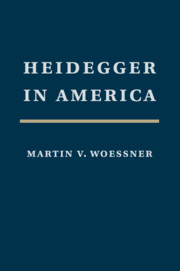Book contents
- Frontmatter
- Contents
- Preface
- Introduction: Being Here
- 1 Freiburg Bound
- 2 Exiles and Emissaries
- 3 Nihilism, Nothingness, and God
- 4 An Officer and a Philosopher
- 5 Dasein and das Man
- 6 The Continental Divide
- 7 Richard Rorty and the Riddle of the Book that Never Was
- 8 Ethics, Technology, and Memory
- 9 Culture Wars
- Conclusion: Being There
- Index
Preface
Published online by Cambridge University Press: 04 February 2011
- Frontmatter
- Contents
- Preface
- Introduction: Being Here
- 1 Freiburg Bound
- 2 Exiles and Emissaries
- 3 Nihilism, Nothingness, and God
- 4 An Officer and a Philosopher
- 5 Dasein and das Man
- 6 The Continental Divide
- 7 Richard Rorty and the Riddle of the Book that Never Was
- 8 Ethics, Technology, and Memory
- 9 Culture Wars
- Conclusion: Being There
- Index
Summary
Now Heidegger was a very strange old gentleman, whose eccentricity had become the nucleus for a thousand fantastic stories. Some of these fables, to my shame be it spoken, might possibly be traced back to my own veracious self; and if any passages of the present tale should startle the reader's faith, I must be content to bear the stigma of a fiction-monger.
Nathaniel Hawthorne, “Dr. Heidegger's Experiment”The American philosopher Richard Rorty had a knack for making summary pronouncements. He was equally adept at playfully puncturing intellectual pretensions. He could build up – lumping seemingly irreconcilable philosophers and ideas into a common cause – but he could also tear down, and with devastating wit. I figured I had a fifty-fifty chance when I dared to run my interpretation of his confrontation with Heidegger by him at a post-lecture reception at SUNY Stony Brook in April 2003. A Rortyan demolition ensued. Undeterred (thanks, perhaps, to a second glass of wine), I proffered the one-minute summary of my larger project for his consideration. The response it received, though polite, was even less enthusiastic.
Rorty could not fathom why anybody would be interested in linking abstract philosophical debates to the dynamic landscape of postwar American history. Philosophy department politicking had nothing to do with – should have nothing to do with – real politics. It was fine to talk about ideas, but why try to embed them in a broader historical or cultural context?
- Type
- Chapter
- Information
- Heidegger in America , pp. ix - xivPublisher: Cambridge University PressPrint publication year: 2010

